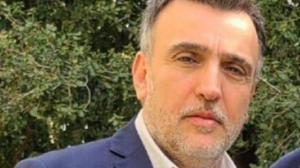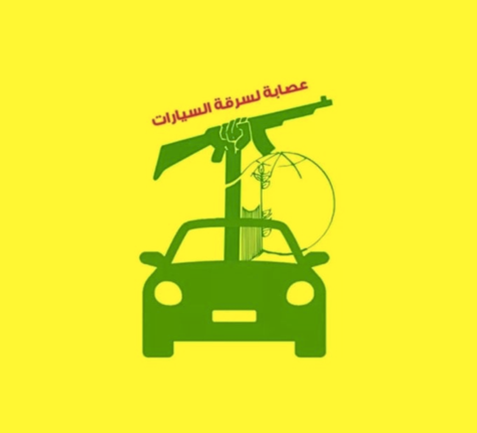The Suspicious Murder of a Christian Politician in Lebanon Raises Fears of Sectarian Violence
Tensions in Lebanon have reached a high point in recent days. It is not because of the fighting between Hezbollah and Israel. The suspicious murder of Pascal Sleiman, a local Christian politician from the leading anti-Hezbollah party in the country, the "Lebanese Forces," has caused fears of the eruption of sectarian violence in the already politically-torn country.

An unusually swift investigation by the state security apparatuses has pointed to a gang of Syrian refugee car thieves as those who committed the murder. Nevertheless, the circumstances of the act have raised serious questions among the disillusioned Lebanese public. This is because of the identity of the victim and his political role; the finding of the car used by the perpetrators to intercept Pascal's car and kidnap him abounded in a nearby town (an unusual act for car thieves); and the fact that the perpetrators drove with a dead body for a while and crossed undetected into Syria through an area along the border which is known to be under close Hezbollah control.

Shortly after the kidnapping took place, the Lebanese authorities arrested seven members of the group allegedly responsible for the murder. With the help of the Syrian regime, the body of Pascal was handed over to Lebanon.
In a country where over the years only anti-Hezbollah politicians have been murdered, and state institutions were never able to find those responsible for the crimes, many Lebanese have questioned the speed of these arrests.
Anti-Hezbollah political parties do not accept the formal state explanation and indirectly point at Hezbollah as the perpetrator of the murder, calling it a highly-targeted and well-planned political assassination. Unofficially, using social media, their supporters claim that the assassination was aimed at deterring Hezbollah rivals from criticizing the armed conflict it initiated six months ago with Israel.
Hezbollah itself did not refer directly to the murder. Rather, the organization's secretary-general, Hassan Nasrallah, warned the Christian politicians against even hinting that Hezbollah was behind the murder and blamed them for promoting a dangerous sectarian discourse that could lead to a civil war.
At the same time, media outlets affiliated with Hezbollah gave the stage to the speculation that maybe Israel was behind the murder as part of its attempts to destabilize Lebanon.
The Lebanese government officials hailed the swift investigation of the murder, adopted the conclusion that it was a random criminal act, and called all sides involved to refrain from unproven accusations. The fact that those officials are part of an interim caretaking government supported by Hezbollah is seen by many opposition figures as a sign of their collaboration with a Hezbollah-led plot.
Past political murders in Lebanon have proved this skepticism toward the state institutions. After all, Hezbollah was never held accountable for any of the political violence incidents attributed to it, and it is known for its ability to carry out elaborate covert operations in Lebanon.
The most prominent example exposed to the public is the 2005 assassination of former Prime Minister Rafik Hariri. During the international legal proceedings of that murder, Hezbollah's domestic hit squad, Unit 121, was exposed to the public, and two of Hezbollah's main operatives in that unit, Salim Ayyash and Habib Merhi, were found guilty by a special international court of the murder. The trial also shed light on the elaborate false claim of responsibility scheme aimed at distancing Hezbollah from the murder. Nevertheless, the Lebanese authorities failed to arrest any of the convicted men, and the unit and members have likely continued to execute their mafia-style operations ever since.
Under those circumstances, it is understandable why Hezbollah's rivals in Lebanon are disillusioned and have little hope for finding the truth behind the very suspicious murder of Pascal Sleiman. The combination of an aggressive terror organization not deterred from assassinating its political rivals with weak state institutions and a long tradition of unaccountability leaves Hezbollah's opponents with very few tools to change the domestic reality of the country.
Dror Doron is a senior advisor at United Against Nuclear Iran (UANI) focusing on Hezbollah and Lebanon. He spent nearly two decades as a senior analyst in the Office of Israel’s Prime Minister. Dror is on Twitter @DrorDoron
Receive Iran News in Your Inbox.
Eye on Iran is a news summary from United Against Nuclear Iran (UANI), a section 501(c)(3) organization. Eye on Iran is available to subscribers on a daily basis or weekly basis.